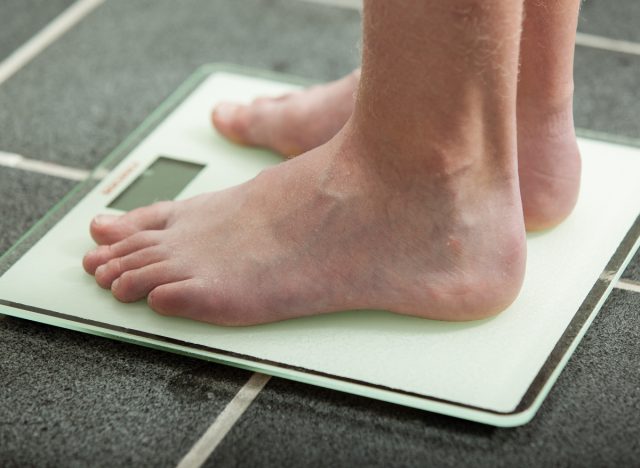What Happens to Your Body When You Walk 30 Minutes Every Day

We’ve all heard that walking is good for you, but just how good? Can simply walking for 30 minutes a day have a significant impact on your health? The answer is an emphatic “yes!” While it may seem like a low-intensity physical activity, research suggests that walking regularly, especially at a brisk pace, delivers a wealth of physical, mental, and emotional benefits.
Whether you’re looking to lose weight, improve your mental health, or feel better in your body, a daily walk is a low-impact, convenient way to make significant improvements to your overall health and well-being. Walking for just 30 minutes a day is one of the easiest, most accessible ways to stay active. Plus, it’s a dead-simple habit that doesn’t require any equipment besides comfy walking shoes. So if you’re looking for a way to increase your energy levels, elevate your mood, support fat loss, and boost cardiovascular health, walking is one of the best choices you can make.
In this article, we teamed up with Meg Anderson, CPT, an NASM-certified personal trainer and founder of Pink & Powerful, who helps us break down the five key things that happen to your body when you commit to walking 30 minutes each day. Read on to learn more.
(Next up: You Need This One Weighted Exercise To Train Like a Beast & Live Longer.)
You May Lose Weight

Weight loss 101 states that you must burn more calories than you consume. While walking may not seem as intense as other forms of exercise, getting your daily steps in increases your daily energy expenditure. “Walking helps you create the consistent calorie deficit needed for fat loss and burns more calories than you think, especially when paired with mindful eating and strength training,” Anderson explains.
Depending on your pace, you can burn anywhere between 100 to 150 calories in a 30-minute session. Here are some helpful tips to support weight loss while walking:
- Walk briskly, aiming for a pace that gets your heart rate up.
- Walk after meals to aid digestion and boost metabolic health.
- Track your steps to help you stay consistent. Aim for at least 10,000 steps a day.
Your Hormone Health May Improve

Daily walking has been shown to improve blood sugar regulation, support insulin sensitivity, and reduce cortisol levels. Walking after meals in particular can help reduce blood sugar spikes, which is crucial for metabolic health. Additionally, walking’s ability to reduce cortisol levels helps support hormonal balance and stress management.
Here’s how to make the most of your daily walk for better hormonal health:
- Go for a walk after meals to help regulate blood sugar levels.
- Walk at a moderate to brisk pace to maximize the benefits of insulin sensitivity and cortisol reduction.
- Rain or shine, make walking a daily habit.
Your Mental Health Gets a Boost

Mental health is just as important as physical health, and walking has been shown to have significant benefits for your mood, focus, and mental well-being. That’s because walking releases endorphins, your body’s natural feel-good chemicals, which improve mood and provide a sense of well-being.
“Regular movement releases endorphins, reduces anxiety, and improves focus,” Anderson says. “Whether you’re walking outdoors or on a treadmill, it’s an opportunity to disconnect from screens and reconnect with your body and mind.”
Here are some helpful tips to support your mental health during your next walk:
- Make your walks a mindfulness practice by paying attention to your breathing and your environment.
- If possible, walk outdoors in nature to enhance your mental clarity and reduce stress.
- Use walking as an opportunity to clear your mind, reflect, and reduce anxiety.
Your Heart Gets Stronger

Cardiovascular health is crucial as we age, and walking is a fantastic activity for supporting heart health. Anderson explains, “Walking daily improves cardiovascular endurance and lowers resting blood pressure. It’s a heart-healthy habit that can reduce your risk of chronic diseases like heart disease and stroke.”
Walking regularly helps increase blood flow and strengthens your heart, making it easier for your cardiovascular system to function at its best. Walking also helps lower blood pressure and improve circulation, both of which are crucial for reducing heart disease risk.
To help boost your heart health while walking, consider the following:
- Walk at a brisk pace to help elevate your heart rate and improve blood flow.
- Include some uphill walking or inclines on a treadmill to increase intensity.
- Walk for at least 150 minutes per week (about 30 minutes a day, five times a week) for heart health benefits, as recommended by the Centers for Disease Control and Prevention.
Your Energy and Recovery Improve

“Walking promotes blood flow, which supports muscle recovery and reduces stiffness,” Anderson says. “This is especially important if you lift weights or sit for long periods. You may find that regular walks help you move better, sleep deeper, and feel more energized overall.”
Here are some helpful tips for using your daily walk to aid in recovery from other activities:
- Take short walks throughout the day to promote muscle recovery.
- If you’re lifting weights or doing intense exercise, walk the day after to help flush out lactic acid and reduce soreness.
- Use walking as a cool-down activity after a more intense workout session to support muscle recovery.